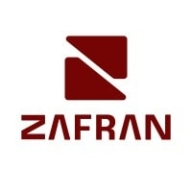


SentinelOne Singularity Cloud Security and Microsoft Defender Vulnerability Management compete in the cybersecurity realm. SentinelOne is preferred for its user-friendly approach and customer support, whereas Microsoft Defender has an advantage with its extensive feature set and integration capabilities.
Features: SentinelOne Singularity Cloud Security delivers real-time threat detection, automated response, and strong endpoint management. Microsoft's offering has comprehensive vulnerability scanning, advanced threat analytics, and integration with its other security tools.
Room for Improvement: SentinelOne could improve its integration with third-party tools, expand its analytics capabilities, and lower its cost. Microsoft Defender needs enhancement in customer support personalization, automating responses, and simplifying its interface for easier user navigation.
Ease of Deployment and Customer Service: SentinelOne is known for easy deployment and responsive customer service, ensuring efficient initial setup and ongoing support. Microsoft Defender fits well with Microsoft's ecosystem, potentially easing deployment for existing users of Microsoft products, although its service might not be as personalized as SentinelOne.
Pricing and ROI: SentinelOne typically requires a higher initial investment, offset by robust automation leading to a strong ROI. Microsoft Defender offers flexible pricing and cost benefits for organizations already using Microsoft infrastructure, potentially saving on long-term expenses.



Zafran Security integrates with existing security tools to identify and mitigate vulnerabilities effectively, proving that most critical vulnerabilities are not exploitable, optimizing threat management.
Zafran Security introduces an innovative operating model for managing security threats and vulnerabilities. By leveraging the threat exposure management platform, it pinpoints and prioritizes exploitable vulnerabilities, reducing risk through immediate remediation. This platform enhances your hybrid cloud security by normalizing vulnerability signals and integrating specific IT context data, such as CVE runtime presence and internet asset reachability, into its analysis. No longer reliant on patch windows, Zafran Security allows you to manage risks actively.
What are the key features of Zafran Security?
What benefits can users expect from Zafran Security?
In industries where security is paramount, such as finance and healthcare, Zafran Security provides invaluable protection by ensuring that only exploitable vulnerabilities are addressed. It allows entities to maintain robust security measures while allocating resources efficiently, fitting seamlessly into existing security strategies.
Microsoft Defender Vulnerability Management enables organizations to identify vulnerabilities, manage patches, and fortify threat detection. It offers endpoint assessments, cloud incident management, and dynamic security through Microsoft's Security Scorecard integration.
Organizations leverage Microsoft Defender Vulnerability Management for advanced threat detection and response. It provides robust tools for vulnerability assessment and cloud incident management, integrated with Microsoft's Security Scorecard to enhance dynamic security profiling. Key features include automatic patch deployment, security configuration management, and seamless integration with Microsoft platforms, benefiting both on-prem and cloud environments. Organizations can track vulnerabilities with severity-based reports, helping manage outdated software and minimizing threat exposure.
What are the key features of Microsoft Defender Vulnerability Management?In healthcare, Microsoft Defender Vulnerability Management helps manage compliance with health regulations, while in finance, it aids in securing sensitive data from cyber threats. Manufacturing sectors benefit from its patch management, keeping operational technology systems less vulnerable to disruptions.
SentinelOne Singularity Cloud Security protects cloud workloads, offering advanced threat detection and automated response. It integrates seamlessly with cloud environments and secures containerized applications and virtual machines against vulnerabilities.
SentinelOne Singularity Cloud Security is renowned for its efficiency in mitigating threats in real-time. The platform integrates effortlessly with existing cloud environments, ensuring robust cloud security management with minimal manual intervention. Securing containerized applications and virtual machines, it excels in threat intelligence and endpoint protection. However, improvements are needed in performance during high workload periods, and more integrations with third-party tools and better documentation would be beneficial. Users often find the installation process complex, support response times slow, and the dashboard's navigation unintuitive.
What are the key features of SentinelOne Singularity Cloud Security?In specific industries, SentinelOne Singularity Cloud Security is implemented to safeguard critical data and infrastructure. Organizations in finance, healthcare, and technology depend on its real-time threat detection and automated response to protect sensitive information. Its ability to secure containerized applications and virtual machines is particularly valuable in dynamic environments where rapid scaling is necessary.
We monitor all Vulnerability Management reviews to prevent fraudulent reviews and keep review quality high. We do not post reviews by company employees or direct competitors. We validate each review for authenticity via cross-reference with LinkedIn, and personal follow-up with the reviewer when necessary.